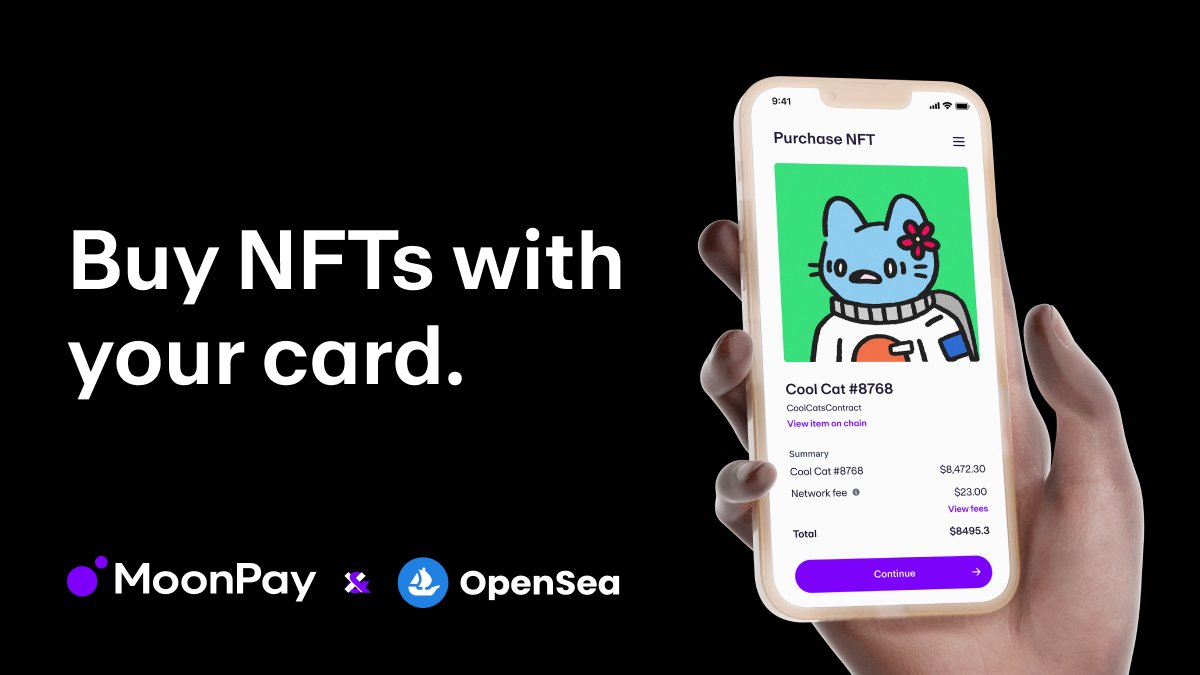
Crypto payment processor MoonPay announced that OpenSea accepts credit cards through the use of their platform. By integrating MoonPay into their NFT marketplace, this enables customers to use VISA, Mastercard, American Express, and other fiat payment processors to purchase NFTs.
Despite users being subjected to multiple hacks and phishing attacks that have drained them and their assets of value, OpenSea is still a monumental figure in web3 with a multi-billion dollar valuation. After migrating to a more secure smart contract in an attempt to prevent future phishing attempts, their partnership with MoonPay demonstrates confidence in both services’ abilities to protect their users assets and personal information.
Previously, users were only able to purchase blockchain art from the popular and highly valued market platform with Ethereum, which had to be added via a crypto wallet such as Metamask. But now that OpenSea accepts credit cards as payment methods, it’s now incredibly easy for potential buyers without knowledge or experience with blockchain technology to buy one of those silly apes they saw on Jimmy Fallon.
Naturally, this is likely to introduce many more customers outside of enthusiast circles to the NFT community, as it offers retail investors the perception of a safe and stable asset to add to their portfolio. However, the risk of future attacks to MoonPay, OpenSea, and/or their users will only increase as more wealth is consolidated, and the diminished barriers to entry will inevitably attract users who are far more susceptible to social engineering.
Additionally, NFT marketplaces are notorious for IP theft due to a lack of preventative measures; currently, OpenSea requires artists and property rights owners to report when their IP is being exploited and doesn’t screen new NFTs themselves.
These issues are bound to worsen by attracting an audience of less informed consumers, which is the clear reasoning behind the decision to accept credit cards. Typically, these situations necessitate the use of content screening AI, which OpenSea currently lacks; instead, the platform has attempted to limit users’ ability to mint large quantities of NFTs, although harsh backlash caused them to quickly reverse this decision.
Now that OpenSea accepts credit cards, what follows is likely a short-term boost in revenue and users, followed by an even bigger hack than before. Whether the weakest link is OpenSea, MoonPay, or the uninformed newcomers, it’s only a matter of time before bad actors find and exploit it. And by abandoning the most unique and appealing features of blockchain technology — anonymity and decentralization — it’s likely that victims of the next hack will lose more than their JPEGs, and may actually be susceptible to credit card fraud or identity theft.
This is Niche Gamer Tech. In this column, we regularly cover tech and things related to the tech industry. Please leave feedback and let us know if there’s tech or a story you want us to cover!